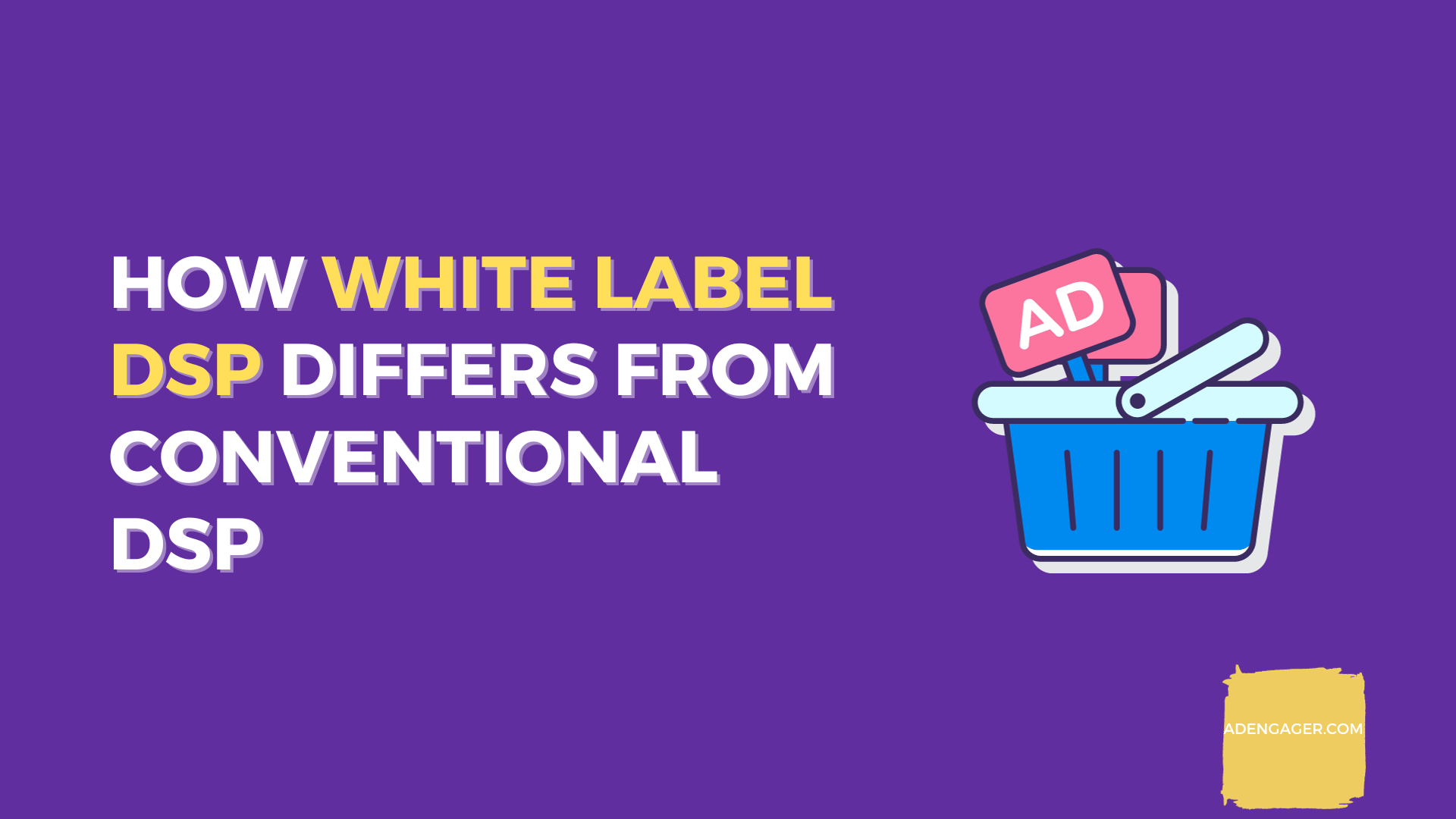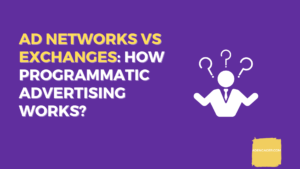What is White Label DSP in Programmatic Advertising

A key tool that plays a pivotal role in this landscape, especially for programmatic experts, is the White Label DSP. As programmatic experts navigate the intricate world of digital advertising, the White Label DSP emerges as a crucial instrument, offering a customizable and rebrandable platform that allows these experts to tailor their strategies with precision. DSP, or Demand-Side Platform, acts as the linchpin between advertisers and publishers, facilitating the dynamic exchange of ad inventory in real-time auctions. Let’s embark on a journey into the realm of White Label DSP, exploring its features, benefits, and the impact it can have on the ever-evolving digital advertising landscape, especially for those well-versed in programmatic intricacies.
What is White label DSP?
White Label DSP, brief for White Label Demand-Side System, is a personalized and rebrandable digital advertising and marketing system that empowers organizations to tailor the DSP according to their certain branding and practical demands. Unlike standard DSPs that feature fixed features and branding, a White Label DSP offers the flexibility to integrate one-of-a-kind logos, color schemes, and various other brand name elements. It essentially supplies a white canvas for services to produce a personalized and smooth individual experience, maintaining brand consistency throughout the marketing procedure. The core attributes of a White Label DSP depend on its adaptability, scalability, and the capability to satisfy the distinctive requirements of advertisers, companies, and various other stakeholders in the digital marketing environment.
How White Label DSP Differs from Conventional DSP:
The vital differentiator between a White Label DSP and a traditional DSP depends on the degree of customization and branding opportunities. While standard DSPs supply standard functions and branding, White Label DSPs break away from this mold and mildew, permitting services to install their own identity into the system. This differentiation boosts the general customer experience, promoting a feeling of possession and control over the advertising and marketing modern technology. Organizations can seamlessly integrate a White Label DSP right into their existing workflows, adjusting it to match their distinct operational needs. This departure from the one-size-fits-all strategy not just distinguishes White Label DSP from conventional DSPs but also intensifies its worth suggestion in a competitive digital marketing landscape.
Features of White Label DSP
Modification Options:
Among the standout functions of a White Label DSP is its comprehensive personalization alternatives. Businesses can customize the system to line up with their specific requirements, choices, and process. This level of customization reaches interface, control panels, reporting tools, and also the performance of the DSP. Advertisers and agencies can adapt the platform to match their one-of-a-kind methods, guaranteeing a seamless integration into their existing procedures.
Branding and White Labeling Capabilities:
White Label DSPs equip services to develop a strong brand name presence in the digital advertising area. With white labeling abilities, companies can change the default branding aspects of the platform with their own logos, color design, and brand imagery. This not just boosts brand name uniformity however likewise cultivates a feeling of count on among clients and partners. The capability to offer a completely branded DSP strengthens the business identity and strengthens its setting in the competitive marketing landscape.
Combination with Third-Party Operatings Systems:
To meet the diverse requirements of marketers and agencies, White Label DSPs typically include robust integration capabilities with third-party systems. Whether it’s incorporating with information management platforms (DMPs), client relationship management (CRM) devices, or other advertising and marketing modern technologies, the White Label DSP helps with a smooth circulation of data and insights. This combination ability boosts the overall effectiveness of digital marketing campaign, enabling businesses to harness the power of several tools within a combined environment.
Scalability and Flexibility:
Scalability is an essential consider the fast-paced world of digital advertising, and White Label DSPs are created with this in mind. These platforms supply scalability both in terms of taking care of differing workloads and adjusting to the developing demands of business. Whether a firm experiences growth in its customer base or determines to diversify its advertising techniques, a White Label DSP supplies the flexibility to scale procedures without endangering efficiency. This versatility guarantees that organizations can stay dexterous and responsive in a dynamic marketing landscape.
Benefits of Utilizing White Label DSP:
Cost-Effectiveness:
Among the main advantages of adopting a White Label DSP is its cost-effectiveness. By going with a white-labeled option, companies can avoid the high expenses related to developing a custom-made DSP from scratch. The initial financial investment is considerably lowered, enabling business to designate resources extra successfully. In addition, recurring upkeep and updates become extra cost-effective, as businesses can leverage the existing framework of the White Label DSP service provider. This cost-effectiveness is particularly advantageous for smaller sized companies and advertisers seeking to enter the digital advertising space without breaking the financial institution.
Faster Time-to-Market:
Time-to-market is important in the rapidly evolving landscape of digital advertising. White Label DSPs quicken the procedure of releasing and executing digital marketing campaign. With pre-built structures and customizable layouts, services can significantly decrease the growth time contrasted to building a DSP from scratch. This sped up time-to-market allows advertisers and companies to rapidly maximize arising opportunities, stay in advance of rivals, and adapt swiftly to changing market conditions.
Brand Uniformity:
Maintaining a constant brand name identity is paramount in constructing trust and acknowledgment. White Label DSPs make it possible for organizations to instill their special branding elements perfectly into the system. From logo designs and color design to interface, the DSP aligns with the overall brand name aesthetic appeals. This consistent branding throughout the advertising and marketing technology enhances client self-confidence and cultivates a cohesive brand experience for both advertisers and authors engaging with the platform.
Improved Control and Transparency:
White Label DSPs offer services with heightened control and transparency over their digital marketing procedures. Marketers and agencies can fine-tune the platform to fulfill their certain demands, ensuring that it lines up exactly with their techniques and goals. This degree of customization boosts control over the customer experience, information monitoring, and campaign optimization. Additionally, the transparency provided by White Label DSPs in regards to reporting and analytics equips organizations to make enlightened decisions, recognize project performance, and develop more powerful partnerships with clients through clear and thorough understandings.
Use Cases and Applications
Agencies and Advertising Firms:
White Label DSPs act as important tools for agencies and advertising companies intending to give detailed and customized marketing services to their clients. These entities often work with varied clients, each having unique branding demands and target audiences. By leveraging White Label DSPs, agencies can develop a customized advertising platform that lines up effortlessly with their customers’ brands. This not just improves the firm’s service offerings yet additionally promotes more powerful client connections. Agencies can efficiently take care of and optimize several projects, guaranteeing that each client obtains a customized and reliable advertising and marketing strategy.
Advertisers and Brands:
For marketers and brands looking for more control and direct participation in their digital advertising and marketing efforts, White Label DSPs provide a compelling service. These platforms make it possible for advertisers to build a customized advertising ecological community that perfectly aligns with their brand identification and advertising objectives. Advertisers can efficiently manage their advertisement invest, target particular target market sectors, and evaluate project efficiency in real-time. The white labeling capacities of the DSP make certain that every touchpoint in the advertising and marketing procedure shows the advertiser’s brand name, boosting brand acknowledgment and trust fund among the target market.
Publishers and Media Companies:
Publishers and media companies can utilize White Label DSPs to enhance their advertising and marketing stock and optimize profits. By integrating an adjustable DSP right into their procedures, authors can regulate exactly how their ad area exists to potential marketers. This includes setting prices models, targeting details advertiser groups, and preserving brand consistency in the advertisement offering process. White Label DSPs equip authors to produce a seamless and top quality experience for advertisers, improving the appeal of their advertisement supply and bring in a broader series of marketing companions.
Difficulties and Factors to consider
Technical Needs:
While the modification choices of White Label DSPs use excellent versatility, businesses need to think about the technological requirements connected with implementing and keeping these platforms. Guaranteeing compatibility with existing systems, dealing with possible combination challenges, and remaining abreast of advancing technological requirements are crucial considerations. Business require to evaluate their technical capacities and sources to effectively browse these difficulties and optimize the performance of their White Label DSP.
Training and Support:
The successful adoption of a White Label DSP rests on the efficiency of the individuals. Educating teams to properly make use of the platform, recognize its features, and make notified choices is vital. In addition, services must take into consideration the schedule of extensive consumer support and training resources from the DSP service provider. Appropriate assistance makes sure that customers can solve problems promptly and maximize the system’s abilities.
Market Competitors and Differentiation:
As the appeal of White Label DSPs expands, services might encounter enhanced competition. To stand out in a jampacked market, firms need to separate their offerings. This might include showcasing unique features, supplying remarkable client service, or creating specialized remedies for specific market particular niches. Comprehending the affordable landscape and strategically placing the White Label DSP in the marketplace are essential factors to consider for long-lasting success.
Conclusion
Finally, White Label DSPs stand for a transformative force in the realm of digital advertising. Specified by their personalization abilities, these platforms empower organizations to create customized marketing communities that line up perfectly with their brand identification and operational needs. The ability to white-label the DSP improves brand name uniformity, cultivates trust, and gives a cost-efficient service for marketers, firms, and publishers.
The possible effect of White Label DSPs on the digital marketing landscape is significant. By using an equilibrium in between adaptability and control, these platforms make it possible for organizations to browse the intricacies of digital marketing with dexterity. As even more stakeholders throughout the advertising and marketing ecosystem embrace White Label ag DSPs, we can anticipate a change towards even more personalized, efficient, and brand-aligned advertising and marketing techniques. The ongoing evolution of these platforms is likely to form the future of digital marketing, producing a new era of personalization and technology. As businesses attend to difficulties and embrace the chances offered by White Label DSPs, they position themselves to thrive in an ever-changing and competitive digital marketing atmosphere.






